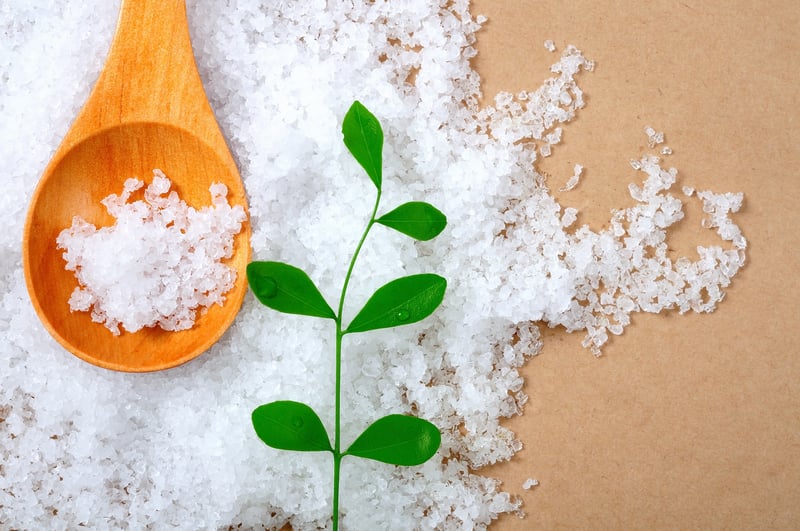What are Electrolytes? Here is a Beginner’s Guide

Have you ever found yourself feeling completely drained, nauseated, and out of sorts after a long workout? Perhaps the gym was a bit too warm. Or, maybe you were training outside in the hot sun. And you likely found yourself sweating. A lot. Or, have you ever caught a bad stomach bug and found your body expelling everything you’ve even thought about eating or drinking (from both ends)? Sorry! Unfortunately, straight-up water is unlikely to be enough to rehydrate you or get you back into balance when you’re in such a state. If you’re feeling seriously fatigued and out of sorts, you might be missing out on something else that’s just as important: Electrolytes. What are electrolytes? What do electrolytes do in the body? And where can you find electrolytes? These are all excellent questions, which we’ll explore below!
What are Electrolytes?
And I don’t just mean you’re exciting (though I’m sure you are). Within your body, electrical signals, or currents, control many operations of your brain, muscles, and nerves. They’re even needed to create new tissue. Electrolytes, which we consume through food and drink, conduct this electric current by way of their positive and negative charges (also called ions) once dissolved in the fluids within the body. And they’re vital as they help the body balance fluids both inside (intracellular) and outside (extracellular) cells as well as nerve impulses throughout our bodies.
The most important electrolytes include mineral salts like:
- Sodium, which is important for blood pressure along with muscle contractions and nerve function. (If you’re confused about sodium or you’re in the camp that believes sodium is “bad,” please see this important article.)
- Chloride, which helps balance electrolytes and the pH within the body and is also necessary for digestion and fluid balance.
- Potassium, which is key for regulating heart function and blood pressure, transmitting nerve impulses, supporting bone health and muscle contraction, and also helps balance pH levels.
- Magnesium, which again helps maintain your heart rhythm and also helps regulate blood sugar levels, supports the immune system, and helps the nerves and muscles function correctly.
- Calcium, known for its contributions to bone and teeth health along with supporting nerve impulses and muscle movement.
- Phosphate, which is also important for bone and teeth strength as well as aiding in energy production for cellular growth and repair.
- Bicarbonate, which is key for maintaining a healthy pH and regulating the heart.
What are the Symptoms of Electrolyte Deficiency
While it’s normal for electrolyte levels to fluctuate, problems arise when levels of electrolytes get out of balance, such as when the body has too many or not enough to function optimally—which results in pushing too much water into cells or pulling the water out. As mentioned, this could be caused by severe fluid loss from exercising intensely (especially in the heat or for long durations), stomach issues (like vomiting and diarrhea), as well as health issues like diabetes, kidney disease, heart disease, or from eating disorders or alcoholism, all of which impair the body’s normal process of maintaining fluid balance (e.g., excreting/resorbing excess water and/or electrolytes). Older individuals are also more susceptible to an imbalance.
Symptoms of an imbalance can be as minor as muscle twitching, spasms, weakness, or numbness to more severe, leading to an irregular heartbeat, fluctuating blood pressure, confusion, bone disorders, or even convulsions and seizures.
While severe electrolyte imbalances are less common, they do happen and can be life-threatening, so ensuring you have a healthy balance is important. Please seek immediate emergency care if you find yourself (or someone you’re with):
- Feeling confused
- Experiencing chest pain
- Experiencing severe muscle weakness
- Experiencing rapid or irregular heartbeat
- If you lose more than 2% of your body weight or gain weight after your long run or training session
A healthcare professional can help determine the electrolyte imbalance cause and severity and provide treatment options.
Finding the Right Balance of Electrolytes
When it comes to electrolytes, “an ounce of prevention is worth a pound of cure.” Before and during your activity, you can help support a healthy balance of electrolytes by ensuring you start out well hydrated (as indicated by clear to light yellow urine before your workout, for example). Be sure to drink when you’re thirsty but remember that drinking too much water may actually lead to an electrolyte imbalance (e.g., hyponatremia). Symptoms of an electrolyte imbalance often include feeling nauseous, lethargic, or retaining fluid.
Before you reach for the nearest “sports drink” to replenish your spent electrolytes, assess how hard you have been training and how you feel. A lot of regular gym goers (and even sedentary bench warmers) unnecessarily consume copious amounts of these “workout beverages” without actually needing them or the electrolytes they provide. In fact, they may be slowing their results as they’re consuming excess and unnecessary sugars and calories. Let’s say you worked out for a half an hour—that sports drink could easily and rapidly replenish all of the calories you just worked so hard to burn off.
If you’re active and eat mostly whole, minimally processed foods, your diet can be a good source of most of the electrolytes you need to keep your body functioning well. Avocados, bananas, and spinach, for example, are rich sources of potassium. And sodium and chloride, which are combined to become table salt, are common additions to many recipes. Foods high in magnesium include spinach, nuts, and seeds. And calcium can be found in seeds, dairy foods, beans and lentils, for example. Finally, foods rich in phosphate include meat, fish, and sunflower and pumpkin seeds.
So, if your diet is filled with healthy, whole foods, you likely have a good foundation of electrolytes most of the time and can leave those sports drinks on the sidelines. That is, unless you are running a marathon, participating in an endurance event, or really did get laid out by the latest stomach bug going around.






